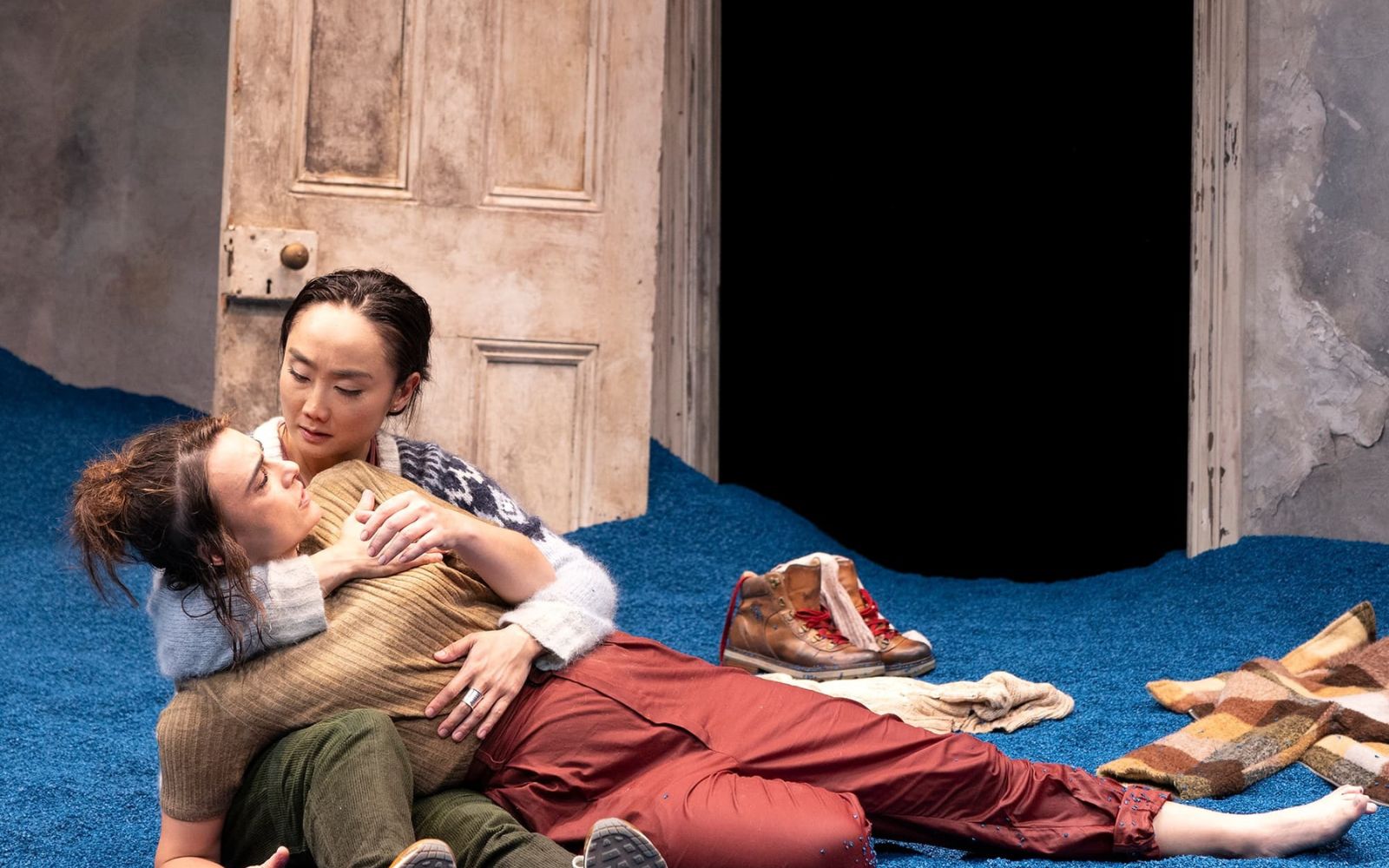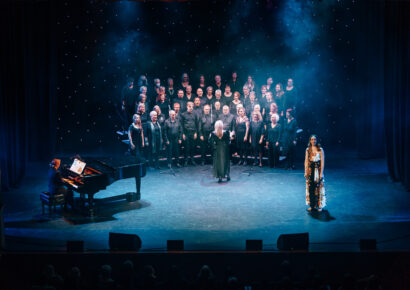A Melbourne Theatre Company production playing at the Arts Centre Melbourne, Fairfax Studio, until 16 Mar (from $75 + booking fee).
It’s a well-worn topic for literature and theatre alike: why do we take our loved ones for granted, until they’re suddenly no longer there to love? How does grief overwhelm our senses, until we start to question our very sanity?
Explore Melbourne’s latest arts and stage news, features, festivals, interviews and reviews here.
Melbourne Theatre Company’s latest two-hander, Meet Me At Dawn, takes inspiration from the myth of Orpheus and Eurydice – lovers who were separated by death, until Orpheus overcomes a series of obstacles to find his love in the underworld, only to be separated from her forever after disobeying Hades’ rules as he led her back to the world of the living. It’s a myth of the human condition, but also of the paradox of grief. You see, Eurydice is to follow Orpheus on his journey back, but Orpheus is not allowed to look behind him to check she is there until they are safely back home. In his final steps, he loses faith and glances back – and she is banished to the underworld forever. As Meet Me At Dawn’s writer, Zinnie Harris, pointed out in a recent interview, “it’s the ultimate paradox: she can only be alive when he is not looking.” As is the way, in grief.
In Harris’ version, we are caught in the moment the lovers reunite – here an eerie, broken house buried by vibrant blue sand, that perfectly encapsulates the surreal intersection between Robyn’s (Jing-Xuan Chan) recreation of their survival after a boating accident on the shores of a mysterious island, and the home she shares with Helen (Sheridan Harbridge) that they are longing to return to.
Brilliant set design by Romanie Harper brings to mind the abandoned desert houses of Kolmanskop, Namibia, overwhelmed by the sands of time (and recreated by local artist Emma McEvoy in an exhibition that went viral a few years ago). Amelia Lever-Davidson’s unobtrusive lighting subtly adds to the feeling of passing time, through the changing of the sunlight filtering through broken walls and windows.
But this isn’t a play only heavy with grief; Harbridge delivers a deft ability to bring the audience to laughter, playing off Chan’s straight-laced and anxiety-ridden Robyn, as they come to terms with why they’ve arrived at this mysterious place, and question whether they’ll ever get out alive. Interactions with an equally mysterious woman off-stage add to the confusion, as Chan perfectly straddles the looming void between reality and the weight of her grief.
In this way, the play highlights a universal paradox of the human experience: that we only truly appreciate things once they are gone. There is so much rich territory to explore within this well-trodden contradiction of humanness, yet after an hour of back and forth between the couple – who the audience must, admittedly at times, wonder why they are even together with the amount of bickering in the script – we are left with an exploration of appreciating your loved ones while they’re alive. Director, Katy Maudlin, does well to draw out the best of a script too rich with repetition, but at only a touch over an hour long, there’s not much room for editing.
Perhaps what’s needed is expansion; less of the weighty monologues in the spotlight, and more of a reflection on the hole left by someone that is always there, almost the furniture by now – as expressed in the play as the ‘me’ after ‘we’ – despite the inevitable challenges that emerge after so many years. And by the time we almost get there – a respite from the broken reality of Robyn’s grief, a moment of love – the play leaves us abruptly with a swift ending.
While Meet Me At Dawn asks us what we would do if we had one more day with someone we had lost, we wouldn’t spend it bickering or disassociating into confused monologues, surely. Perhaps it would be wiser to ask whether that one day would be better spent enjoying the life we still have, despite our loss.
Get tickets here.







